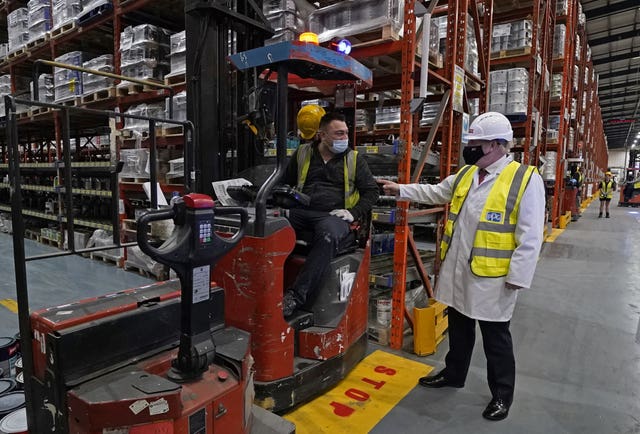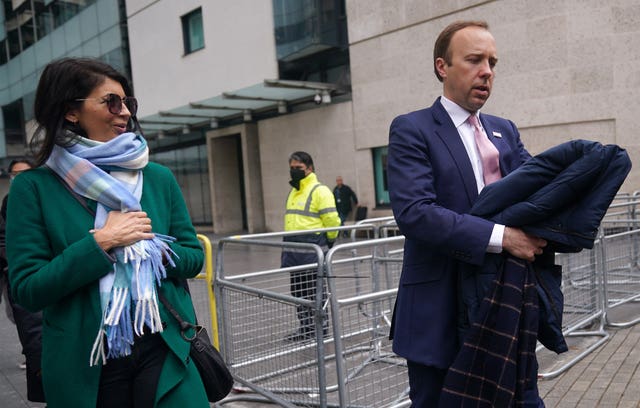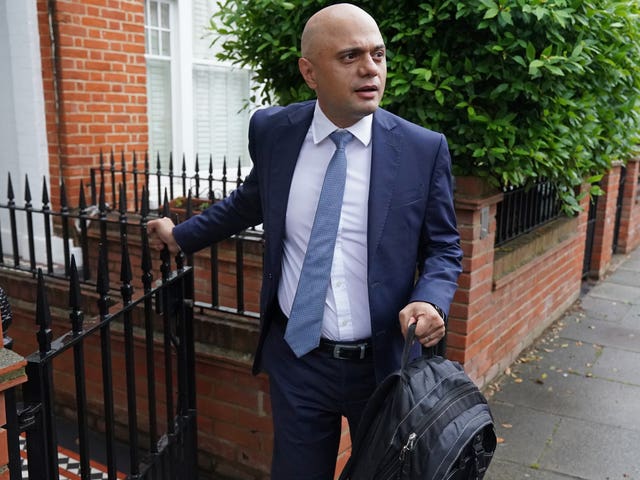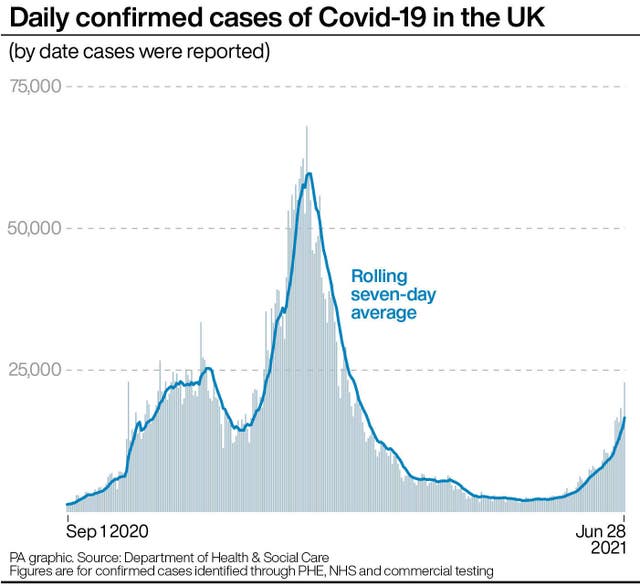Johnson sticks with July 19 for ending all coronavirus restrictions
The Prime Minister said England was ‘set fair’ to be free of lockdown measures by this date.

Boris Johnson has dismissed the possibility of ending coronavirus restrictions early by saying it is “sensible” to stick with the planned “terminus” date of July 19, after talks with his new Health Secretary Sajid Javid.
The Prime Minister said on Monday that England was “set fair” to be free of lockdown measures and back to normality “as far as possible” by the later date he set when previously delaying his plans by four weeks due to the surging Delta variant.
Mr Javid earlier sparked opposition concerns that he was ignoring the “data, not dates” approach by saying his “absolute priority” was to end controls as quickly as possible and declaring there would be “no going back” once they were ended.
He was to update the Commons on his coronavirus plans having succeeded Matt Hancock who resigned over the weekend after being revealed to have broken Covid-19 guidance by kissing an aide in his ministerial office during the pandemic.
During a by-election campaign visit in Batley, the Prime Minister defended the delay to Mr Hancock’s exit as “the right pace to proceed in a pandemic” and said he had held a “long meeting” with Mr Javid on Sunday.
“Although there are some encouraging signs and the number of deaths remains low and the number of hospitalisations remains low – though both are going up a bit – we are seeing an increase in cases,” the Prime Minister told broadcasters.
“So we think it’s sensible to stick to our plan to have a cautious but irreversible approach, use the next three weeks or so really to complete as much as we can of that vaccine rollout – another five million jabs we can get into people’s arms by July 19.

“And then with every day that goes by it’s clearer to me and all our scientific advisers that we’re very likely to be in a position on July 19 to say that really is the terminus and we can go back to life as it was before Covid as far as possible.”
Announcing the delay to the end of all legal social distancing controls earlier this month, Mr Johnson set a possible date for easing restrictions as July 5, but even then said it was far more likely to come on July 19.
On Monday, Mr Javid, a former chancellor, struck a less cautious tone on lockdown restrictions than his predecessor.
During a visit to St Thomas’ Hospital in London, Mr Javid told broadcasters: “I want to see the restrictions lifted and life going back to normal as quickly as possible.
“Right here and now that is my absolute priority. I want to see those restrictions lifted as soon as we can, as quickly as possible.

“In terms of the road map to that, you’ll have to wait for my statement to Parliament later today.
“It’s going to be irreversible, there’s no going back. That’s why we want to be careful during that process.”
Labour’s shadow health minister Justin Madders said the comments “smack of complacency from the new Health Secretary”.
“People have heard this before. First we were told we’d beat this virus in 12 weeks, then that we’d be back to normal by Christmas, then we were told it was data, not dates,” the MP said.
“We don’t need boastful claims, we need the Government to be taking it seriously and coming up with a proper plan to lift these restrictions and get back to normal.”
Mr Hancock was always considered to be among the more pro-lockdown voices in the Cabinet, but he resigned as health secretary on Saturday after leaked CCTV images showed him in an intimate embrace with an aide in his ministerial office.

As a former chancellor, some expected his successor to shift priority onto the health of the nation’s finances, with some in the Tory party anxious for a swifter return to normality despite the increase in Covid-19 infections being fuelled by the Delta variant.
In an interview last year, Mr Javid expressed his concerns over long lockdowns and how they would impact the economy.
But health bosses urged Mr Javid to be the “voice of caution” in the Cabinet, as a scientist advising the Government warned it would be a “definite mistake” to bring forward the lifting of restrictions.
NHS Confederation chief executive Matthew Taylor warned that, while the vaccination programme was lessening the link between infection and deaths, the number of cases in hospital was rising.
“Covid is an issue and he needs to be a voice of caution in the Cabinet in terms of the potential pressures in the health service,” he told BBC Radio 4’s Today programme.
Professor Peter Openshaw, who advises the Government as a member of Nervtag (New and Emerging Respiratory Virus Threats Advisory Group), said it would be a “definite mistake” to bring the easing of restrictions forward from July 19.

The Imperial College London academic told Sky News: “He may have different attitudes, but I do hope that he will follow his predecessor and take a very cautious approach, because we must get the vaccination rates up before we ease the restrictions.”
Prof Openshaw added: “We are very fortunate to have had this four-week delay which allows vaccination rates to get really high and for us to gather a lot more data about just how the Delta agent is spreading.
“And I think bringing the date forward would be a definite mistake.”





